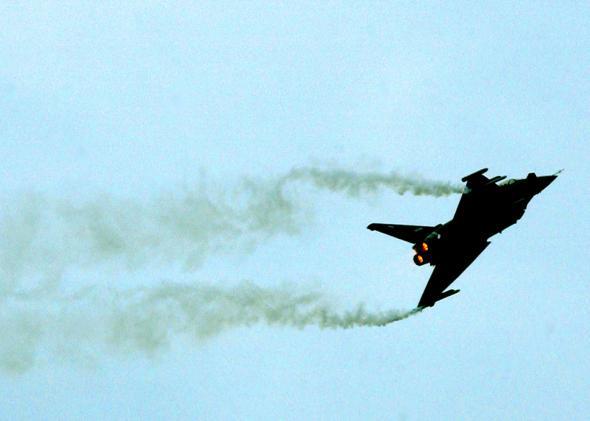Brazil, poised for a while now to place a big order for new fighter aircraft, surprised the world today by going with Sweden’s Saab for the $4.5 billion deal rather than Boeing or the French company Dassault, which had looked like the leading contenders.
The Brazilian government appears to want people to believe that the decision was in part a response to revelations about National Security Agency spying. And that makes at least a little sense. Defense contractors have close relationships with their home countries’ national security establishments, and the NSA has shown it’s interested in conducting espionage on Brazil. Small Sweden probably lacks the kind of global ambitions that would lead to that kind of undertaking.
On the other hand there was a French bid in the final round as well, and they didn’t get it either. One of the most salient differences between Saab (which, incidentally, is not the same company as the company that makes Saab cars) and its rivals is that Saab was offering cheaper planes. Boeing and Dassault say that’s because the planes are inferior. Of course shoppers in the real world know that more expensive isn’t always better. And that might be especially true for certain kinds of military equipment. After all, one thing that happens in military actions is things get blown up or otherwise destroyed. An arsenal you can afford to replace is in some respects more credible than a gold-plated one that stretched your national budget. It’s also not obvious to me that Brazil actually has any particularly urgent need to fight air superiority battles against its neighbors, and to the extent that your emerging market military buildup is really about national pride, you might as well do it cheaply.
Still, I think if you’re a multinational American company, you’ve got to be looking over your shoulder at least a little bit on this. We’ve seen American technology companies worried about the commercial implications of American spying and the aerospace sector has reason to worry as well.
